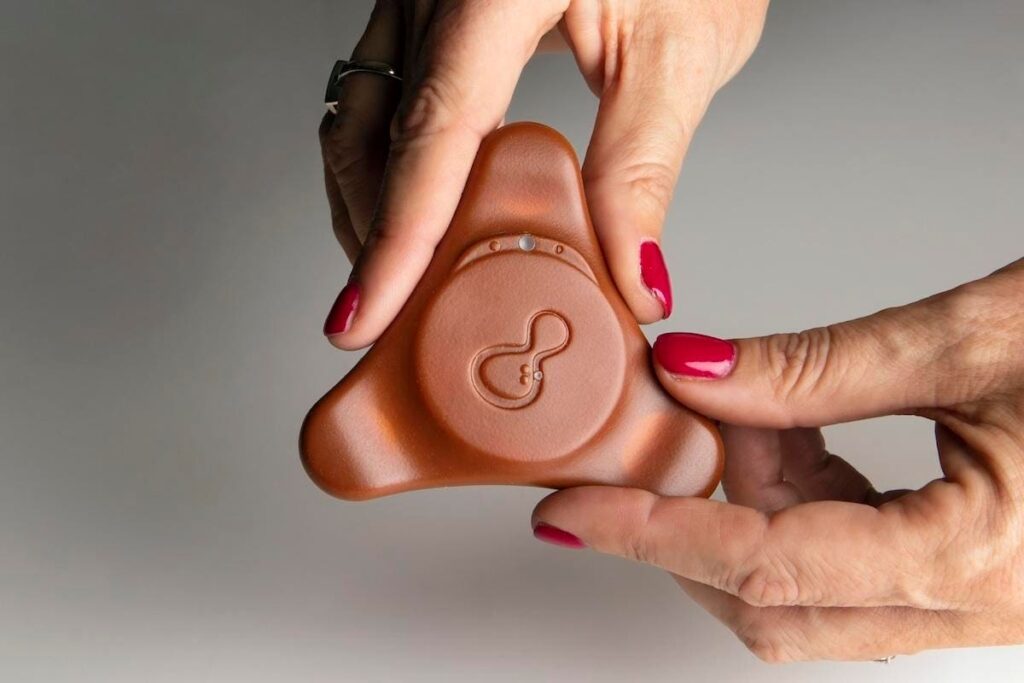Sharon Samjitsingh’s journey to revolutionize care for respiratory and lung diseases with Health Care Originals (HCO) is a story of innovation and resilience, one that overcomes the funding barriers often faced by women of color. HCO’s work is groundbreaking. She has used Reg CF to build a community of investors who are as passionate about improving asthma and COPD patient outcomes as they are about supporting a mission-driven company.
Addressing Lung Disease With A Device And Comprehensive Care
More than 35 million people in the United States live with chronic lung diseases such as asthma and COPD. Sharon Samjitsingh, herself an asthma sufferer, is the cofounder and CEO of HCO, a venture-backed healthcare company dedicated to providing personalized solutions to Americans affected by respiratory conditions.
Women are disproportionately affected by asthma and COPD, experiencing more severe symptoms, higher rates of misdiagnosis, and greater quality-of-life impacts than men. Changes in hormones, the fact that women’s lungs might be more easily damaged, and unfair treatment in healthcare because of gender all play a role in these uneven health situations.
While pursuing her master’s at the University of Rochester in 2013, Samjitsingh recognized the potential of a nascent technology developed there. It could predict asthma attacks by tracking coughing and other factors in real-time. This ability resonated deeply with Samjitsingh, who had experienced the limitations and fear associated with asthma throughout her life. She recalls her parents’ “helicopter parenting,” driven by the uncertainty of what might trigger her next attack. The core technology made the “seemingly invisible visible”.
The company officially launched in 2016, following the award of a patent. Samjitsingh and her team transformed the university’s research into a wearable device. By 2018, HCO had its first product. In 2018, HCO secured its first pharmaceutical customer who wanted to use the device in a clinical trial, driven by the device’s ability to capture coughs in real-time and in real-life settings.
Eric Allyn—former Chairman of Welch Allyn, a family-owned medical device company and Oova’s second-largest investor—worried that the focus on clinical trials was overshadowing the company’s mission to improve lives through healthcare innovation. The board agreed. Within three months, HCO piloted a new direction. The product evolved into the Nightingale Virtual Respiratory Care program. This comprehensive solution integrates a wearable device with self-management education, respiratory therapists, AI, and telemedicine, aiming to provide patients with both data and actionable support.
HCO is reimbursed by 23 insurance companies, including United Healthcare, Aetna, and Blue Cross. A Validation Institute study confirmed that HCO’s solution improves outcomes for asthma and COPD patients, and backed their claims with a $100,000 guarantee.
In a significant development, the Asthma and Allergy Foundation of America (AAFA) just announced a partnership with HCO for its Health Equity Advancement and Leadership (HEAL) initiative. The program, HEAL Texas, will launch in the Dallas-Fort Worth area, a region identified in AAFA’s 2024 Asthma Capitals report as one of the most challenging areas to live with asthma.
Lynne Bosma, health equity director at AAFA, emphasized the importance of this collaboration: “We want to design an asthma program that is easy to access and empowers adults to manage their asthma. The combination of [HCO’s] innovative technology and personalized care, along with AAFA’s educational and support resources, offers exciting potential to help save lives.”
Reg CF Drives Asthma And COPD Care With Community Investment
Samjitsingh’s journey to secure funding for HCO reflects the challenges minority women founders face when seeking venture capital. They raise less than 1% of VC. As an immigrant from Trinidad and Tobago, Samjitsingh received over 350 “nos.”
Her experience highlights the difficulties in raising capital as a woman of color. “It’s amazing to me,” she says, “that we have been held to different standards.” Despite having signed contracts, she still encountered the common refrain from some VCs: “Come back when you have more traction.”
She secured early investments from angels within the Rochester community. Her first institutional funding came from Cranberry Capital, a small family office, in 2016. Sapphire Partners, based in Boston, invested in 2019, recognizing the company’s potential based on its million-dollar revenue pipeline from clinical trials. Safar Partners and Chloe Capital also invested.
Safar Partners, a venture capital investor in HCO, suggested that, as a mission-driven company, it would likely succeed in raising money through Regulation Crowdfunding. They believed that a community round would also be an effective way to connect with people who would care deeply about HCO’s mission and help build a community around the company. Safar Partners has a history of encouraging their mission-driven companies to use Wefunder for this purpose.
Reg CF enables startups to raise capital directly from a wide range of everyday investors. Samjitsingh considered an investment from Sherwood Neiss, a leading voice in Reg CF and co-founder of Crowdfund Capital Advisors, a “stamp of approval.” Female founders often show a talent for crowdfunding, connecting with communities through compelling stories and building trust.
Maria Springer—founder and CEO of Capital Department, which provides fundraising support—highlights the broader significance of Reg CF, particularly for women and minority founders. “Health Care Originals is a standout healthcare AI startup with $5 million in contracted annual recurring revenue (ARR) and exceptional deal economics. Retail investors are investing in the community round on the same terms as institutional VCs, and HCO is winning hundreds of investor-evangelists—all consolidated into a single line on the cap table through a Reg CF special purpose vehicle (SPV).”
Reg CF can help address the systemic barriers in traditional venture capital. Data from Crowdfund Capital Advisors indicates that of the more than 8,100 companies that have raised funds through Reg CF and have collectively raised over $ 3 billion. Importantly, 2,900 have women and minority founders have used Reg CF. Women of color represent 13% of offerings, still a disproportionately low percentage, but far better than venture capital.
Samjitsingh calls crowdfunding one of the most rewarding parts of building her business, largely because of the community it creates. Her investors aren’t just writing checks—they’re offering expertise, referrals, encouragement, and other support. She makes a point to stay personally connected, sending thank-you notes and keeping the lines of communication open.
That effort has paid off, turning backers into a network of allies who care about the company’s success and often lend a hand beyond their investment. As Kingscrowd—an investment data platform for private markets—put it in their investment memo, “We are excited to join Health Care Originals on its journey to becoming a leader in respiratory care.”
Health Care Originals is poised to transform respiratory and lung disease care through its integrated approach. As the company scales its operations, its success further validates the potential of Reg CF to connect innovative healthcare solutions with a broader base of investors, driving progress and improving outcomes for millions affected by conditions such as asthma and COPD.
Read the full article here











